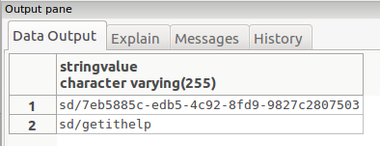Cannot set multiple Organizations through Custom Field Defaults or Directives
...
Using
...
Jira Service Desk 3.3.x customers get multiple notifications for same event
JIRA Service Desk 3.3.x changes the way that it handles customer notifications. The result is that it is no longer a one-click operation in order to disable the JSD notification system and have JEMH as the only notification source. Each project now has a customer notifications section, where you will need to disable each of the rules present in order to stop them from being sent. Please see https://thepluginpeople.atlassian.net/browse/JEMH-5253 - After upgrading to JSD 3.3 customers get double notifications CLOSED for more details on how to do this.
...
Cannot approve
...
a Service Desk issue via
...
JEMH
Jira Service Desk 3.2.0 introduced a new approval feature to workflows. As of version 2.7.0, JEMH supports this feature - see https://thepluginpeople.atlassian.net/browse/JEMH-5010 for more information.
...
When Agents use Share with Customer, customers are not notified
![]() JSD does not order its operations correctly, the property that identifies whether a comment is Public or Private is not updated prior to the ISSUE_UPDATED event being fired, so JEMH has no option but to consider it exactly as it is presented, a Private comment,which should not be communicated to Request Participants (Customers). See JSD-3533 on Atlassian's issue tracker. Historically, JEMH struggled to consitantly determine whether a created comment was public or private (internal). Newer versions of JEMH do not have these problems. Please upgrade to the latest version of JEMH available for your Jira via the add-on management screen. In order to get the best Service Desk experience, we recommend upgrading to at least version 3 of JEMH (for Jira 8.x).
JSD does not order its operations correctly, the property that identifies whether a comment is Public or Private is not updated prior to the ISSUE_UPDATED event being fired, so JEMH has no option but to consider it exactly as it is presented, a Private comment,which should not be communicated to Request Participants (Customers). See JSD-3533 on Atlassian's issue tracker. Historically, JEMH struggled to consitantly determine whether a created comment was public or private (internal). Newer versions of JEMH do not have these problems. Please upgrade to the latest version of JEMH available for your Jira via the add-on management screen. In order to get the best Service Desk experience, we recommend upgrading to at least version 3 of JEMH (for Jira 8.x).
...
Issues created by JEMH are not visible in the Customer Portal
In order for issues to be visible in the JSD customer portal, they must have a value set for the Customer Request Type field. See below for more information on locating and setting a value.
...
Locating the Customer Request Type
Prior to JSD 3.1 it was possible to locate the value that JEMH needed to set for the Customer Request Type custom field, by enabling the field, and examining the REST response. In 3.1, that is no longer possible ( https://jira.atlassian.com/browse/JSD-3471), as a result, there are only two ways to locate the required value
...
Find the issue ID of an existing issue which has the request type you are looking for set. Here are two ways to find this id:
View an existing issue and hover the cursor over the "Edit" action button. Your browser should show the issue ID in the hyperlink URL
Go to the REST API endpoint for an existing issue (e.g. http://localhost:8080/rest/api/2/issue/SD-13). The issue ID number can be found on line 2:
Code Block {expand: "renderedFields,names,schema,transitions,operations,editmeta,changelog,versionedRepresentations", id: "10501", self: "http://localhost:8080/rest/api/2/issue/10501", key: "SD-13"
Use an SQL query on your JIRA database to list the custom field values for the issue.
Code Block SELECT id, issue, customfield, stringvalue FROM customfieldvalue where issue=10501;
The query result should contain a field value that matches the format of
projectKey/requestType: The following query can provide a unique list of Customer Request Type values in your system. Use the target projectkey lower cased to scope the query result:
The following query can provide a unique list of Customer Request Type values in your system. Use the target projectkey lower cased to scope the query result:Code Block select stringvalue FROM "customfieldvalue" where stringvalue LIKE 'key/%' group by "stringvalue";
This value can be automatically used in future by JEMH, through the use of a Custom Field Default for Customer Request Type



